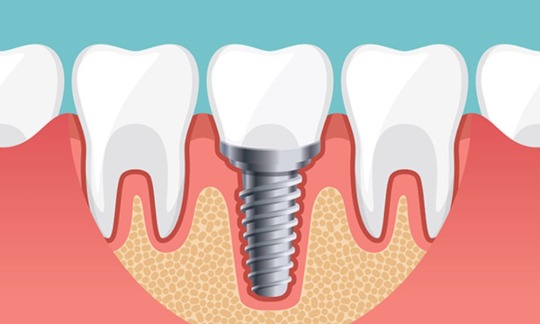Text
Invisalign Treatment Process in Jamaica Plain, MA

Dreaming of a dazzling smile but dreading traditional braces? Invisalign might be your perfect solution. Jamaica Plain Dental offers this innovative teeth-straightening treatment, and here, we'll break down the entire Invisalign process, step by step.
Unveiling the Magic of Invisalign
Invisalign uses a series of clear, removable aligners, custom-made to fit your teeth snugly. Unlike braces, these aligners are practically invisible, making orthodontic treatment discreet and comfortable.
Step-by-Step Guide to Your Invisalign Journey at Jamaica Plain Dental
Initial Consultation: Your journey begins with a consultation at Jamaica Plain Dental. Our experienced dentists will assess your teeth, gums, and overall oral health to determine if Invisalign is the right choice for you. They'll also discuss your desired outcome and answer any questions you may have.
Crafting Your Treatment Plan: If Invisalign is a good fit, we'll take digital scans or X-rays of your teeth. This creates a 3D model used to design your custom aligner trays. We'll also map out a treatment plan outlining the estimated number of aligners and the overall treatment duration.
Aligner Creation: With the treatment plan finalized, the digital models are sent to Invisalign labs. There, your personalized aligner trays are meticulously crafted using advanced technology.
Receiving Your First Aligners: It's finally here! At your next appointment, we'll present your first set of aligners and ensure they fit comfortably. We'll also provide detailed instructions on wearing and caring for your aligners.
Gradual Transformation: You'll wear each set of aligners for a prescribed period, typically one to two weeks. As you wear them consistently, the aligners gently apply pressure to your teeth, gradually shifting them into their desired positions.
Regular Check-Ups: To monitor your progress and ensure everything is on track, we'll schedule regular check-up appointments. During these visits, we'll assess your progress, provide new aligner sets, and address any concerns you might have.
Maintaining Your New Smile: Once your treatment is complete, you'll likely need to wear a retainer for some time to maintain your beautiful new smile. We'll provide detailed instructions on retainer wear and care.
Invisalign Advantages at Jamaica Plain Dental
Discreet Treatment: The clear aligners are barely noticeable, allowing you to straighten your teeth without impacting your smile aesthetics.
Enhanced Comfort: Unlike traditional braces, Invisalign avoids the discomfort of metal wires and brackets.
Removable Aligners: You can remove the aligners for eating, drinking (except water), brushing, and flossing, promoting better oral hygiene.
Faster Treatment Times: Invisalign treatment can sometimes be completed in less time compared to traditional braces.
Unveiling a Smile with Confidence at Jamaica Plain Dental
Invisalign offers a path to a straighter, more confident smile. Jamaica Plain Dental is committed to providing exceptional Invisalign care, using advanced technology and expertise to guide you through every step of the process.
Schedule your initial consultation today and take the first step towards a smile you'll love!
0 notes
Text
Can Dental Problems Trigger Swollen Lymph Nodes?

Ever felt those little bumps under your chin or along your neck get bigger? We all have lymph nodes, tiny warriors in our immune system, that fight off infection. But sometimes, they swell up, leaving us wondering why. While colds and the flu are common culprits, did you know your teeth could be the secret villain?
How Teeth Trouble Triggers Swollen Nodes
Imagine a toothache or gum infection – yikes! Those nasty bacteria don't just stay put. They can sneak out and trigger your body's defense system, including your lymph nodes. These nodes then swell up like tiny firefighters rushing to the scene. Common dental suspects that cause this swelling include:
Abscessed teeth: Throbbing pain and a swollen face? That's often an abscess, notorious for causing swollen lymph nodes in your neck and jaw.
Gum disease: Untreated, it creates pockets around your teeth where bacteria love to party. This party can inflame nearby lymph nodes.
Wisdom teeth woes: When those wisdom teeth erupt, especially if stuck (impacted), they can cause local swelling and swollen lymph nodes in your jaw.
New oral piercings: These can introduce bacteria, potentially leading to infections and swollen lymph nodes near the piercing.
More Than Just Bumpy Necks
Swollen nodes often come with other dental drama, like:
Toothache or sensitive gums
Puffy or bleeding gums
Bad breath you can't hide
Pus drainage (gross!)
Fever or chills (yikes!)
Time to See Your Dental Champion
If you experience swollen lymph nodes with any of these symptoms, don't wait! Schedule an appointment with your dentist. Early diagnosis and treatment are key to stopping the infection before it spreads and causes bigger problems.
Why Seeing Your Dentist Matters
They're the detectives: They'll figure out what's causing your swollen nodes and underlying dental issue.
Fast fixes: Early intervention prevents the infection from getting worse and harming your health.
Pain relief: Say goodbye to discomfort! Treatment addresses the source of the problem, bringing sweet relief.
Healthy smile, happy future: Taking care of dental problems now prevents future complications and keeps your smile shining!
Jamaica Plain Dental: Your Smile Guardians
At Jamaica Plain Dental, we believe in complete oral care for a healthy you. Our friendly and expert dentists create personalized treatment plans just for you. Whether it's swollen nodes or any other dental concern, we're here to help.
0 notes
Text
Understanding the Process: How Gums Grow and Bond to Dental Implant Teeth

Dental implants have revolutionized the field of dentistry, offering a permanent solution for tooth loss. One crucial aspect of successful dental implant treatment is the integration of the implant with the surrounding gum tissue. Understanding how gums grow and bond to dental implant teeth is essential for patients undergoing this procedure. In this blog post, we'll explore the fascinating process of gum integration with dental implants.
The Anatomy of Dental Implants
Before delving into how gums bond to dental implants, it's essential to understand the anatomy of dental implants. Dental implants consist of three main components:
The Implant Fixture: This is a titanium post surgically implanted into the jawbone. It serves as the artificial tooth root.
The Abutment: The abutment is a connector piece that attaches to the implant fixture. It protrudes above the gum line and provides support for the dental crown.
The Dental Crown: The dental crown is the visible portion of the implant. It is custom-made to match the shape, size, and color of the natural teeth.
How Gums Grow Around Dental Implants
After the placement of a dental implant, the surrounding gum tissue undergoes a process called "osseointegration," where the bone fuses with the implant fixture. Once osseointegration is complete, the gums begin to grow around the implant.
The gums form a seal around the abutment, creating a protective barrier against bacteria and food particles. This process is crucial for maintaining the health and stability of the dental implant.
Factors Affecting Gum Growth and Bonding
Several factors can influence how gums grow and bond to dental implant teeth:
Proper Oral Hygiene: Good oral hygiene practices, including regular brushing, flossing, and dental check-ups, are essential for maintaining healthy gums around dental implants.
Bone Density: The density and quality of the jawbone play a significant role in the success of dental implant treatment. Adequate bone density is necessary for osseointegration and proper gum growth.
Implant Placement: The precise placement of the dental implant is crucial for achieving optimal gum integration. A skilled dentist will ensure that the implant is positioned correctly to support healthy gum tissue.
Patient's Overall Health: Certain systemic conditions, such as diabetes and autoimmune disorders, can affect gum health and the body's ability to heal after implant surgery.
The Bonding Process
As the gums grow around the dental implant, they form a tight seal, creating a stable foundation for the dental crown. This bonding process is essential for preventing infection and ensuring the long-term success of the implant.
Once the gums have fully bonded to the dental implant, patients can enjoy restored function and aesthetics, allowing them to smile, speak, and eat with confidence.
Conclusion
Understanding how gums grow and bond to dental implant teeth is crucial for patients undergoing implant treatment. By following proper oral hygiene practices and addressing any underlying health issues, patients can support healthy gum integration and ensure the long-term success of their dental implants. If you're considering dental implants, consult with a qualified dentist to learn more about the process and determine if implants are the right option for you.
0 notes
Text
What Should You Do If Your Temporary Crown Breaks?

Temporary crowns, valiant little soldiers standing guard until their permanent counterparts arrive, sometimes meet their maker before the final crown ceremony. While a broken temporary crown can be stressful, knowing the right steps can transform this dental detour into a manageable blip.
Calming the Cracked Crown Chaos
First, take a deep breath. Panic won't mend the crown, but a clear head will guide you through the next steps. Assess the situation:
Is the crown completely broken? If yes, locate the pieces if possible.
Is it loose or cracked but still on the tooth? If yes, avoid chewing on that side and be extra gentle with your mouth.
Is there pain or sensitivity? Note the severity and location for your dentist.
Contacting Your Dental Cavalry
Next, reach out to your dentist! Their expertise is key to navigating this crown conundrum. Depending on the situation, they may:
Schedule you for a prompt appointment to reattach or replace the temporary crown.
Offer temporary solutions like over-the-counter dental cement or clove oil for pain relief.
Advise leaving the crown off if the exposed tooth isn't causing issues, with a follow-up appointment soon.
Temporary Fixes for Temporary Woes
While waiting for your dental appointment, some gentle self-care can help:
Avoid chewing on the affected side to prevent further damage.
Rinse your mouth gently with warm salt water to keep the area clean.
Use over-the-counter pain relievers if needed, following the recommended dosage.
Avoid hot and cold foods and drinks that can irritate the sensitive tooth.
Be extra mindful of oral hygiene to prevent infection.
Preventing Future Fractures
Knowing why your temporary crown met its demise can help prevent future mishaps:
Chewing hard foods or ice can put undue stress on the temporary crown.
Clenching or grinding your teeth can also lead to cracks and breaks.
Using your teeth to open things is a recipe for disaster, temporary or permanent crown alike.
By following these tips and listening to your dentist's advice, you can navigate a broken temporary crown like a dental pro. Remember, temporary crowns are just that – temporary. While they play a crucial role in protecting your tooth, they're not invincible. With a little care and quick action, you can overcome this bumpy road and greet your permanent crown with a smile (even if it's a slightly sensitive one!).
Bonus Tip: Consider keeping a "dental emergency kit" on hand with over-the-counter pain relievers, clove oil, and temporary dental cement – just in case a crown decides to take an early vacation!
0 notes
Text
Flossing Hacks: Making Flossing Fun & Effective

Flossing: the bane of many a dental routine. It's often seen as tedious, time-consuming, and even downright unpleasant. But did you know that flossing is just as important as brushing for maintaining good oral health? It removes plaque and food particles from between your teeth, where your toothbrush can't reach. This helps prevent cavities, gum disease, and bad breath.
So, how can we make flossing more fun and effective? Here are a few hacks:
1. Choose the right floss.
There are many different types of floss on the market, so find one that you like. You can try waxed floss, unwaxed floss, flavored floss, or even water flossers. Experiment until you find one that is easy to use and comfortable on your gums.
2. Make it a routine.
The best way to make flossing a habit is to do it at the same time each day, like after breakfast or before bed. You can also set a timer for two minutes to make sure you're flossing for the recommended amount of time.
3. Get creative.
There are no hard and fast rules about how to floss. Some people find it easier to floss one tooth at a time, while others prefer to floss in sections. You can also try flossing while you're watching TV or listening to music.
4. Reward yourself.
If you're struggling to stick with flossing, give yourself a reward for doing it. This could be anything from a small treat to a new pack of floss.
5. See your dentist.
Your dentist can show you the proper way to floss and answer any questions you have. They can also recommend products that can help you floss more effectively.
Making flossing a fun and effective part of your dental routine is important for your oral health. By following these tips, you can make flossing something you actually look forward to.
Looking for a Dentist in Jamaica Plain?
If you're looking for a dentist in Jamaica Plain who can help you improve your oral health, contact Jamaica Plain Dental. We offer a variety of dental services, including flossing instruction and education. We're committed to helping our patients achieve healthy, beautiful smiles.
Schedule an appointment today!
We hope this article has helped you learn some new flossing hacks. Remember, flossing is an important part of maintaining good oral health. So get out there and floss like a pro!
1 note
·
View note